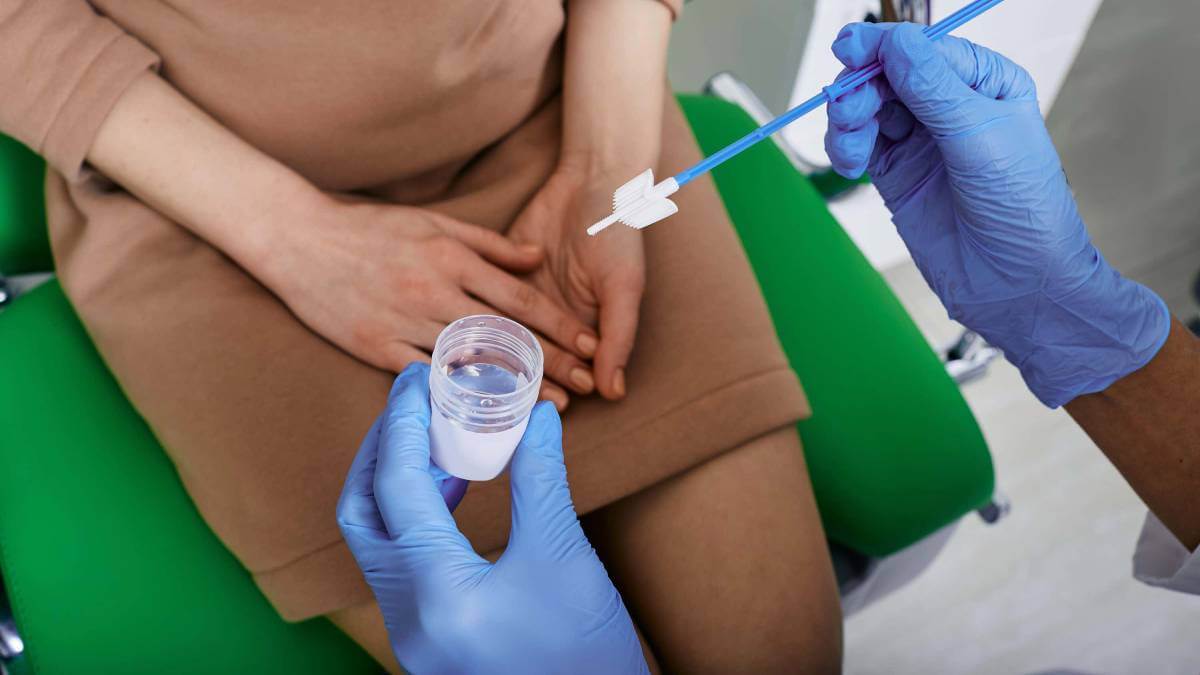Research from Cancer Council NSW shows Australia is on track to become the first country in the world to eliminate cervical cancer as a public health problem.
Cancer Council NSW claims that if vaccination and screening coverage are maintained at their current rates, cervical cancer is likely to be eliminated as a public health issue in Australia by 2035.
The Cancer Council NSW says rates will steadily reduce further, dropping below four in 100,000 and the associated mortality will fall below one per 100,000 women by around 2035.
Here’s what you need to know about cervical cancer.
What is cervical cancer?
Cervical cancer is a cancer found anywhere in the cervix – the opening between the vagina and the womb – and is usually caused by an infection from certain types of human papillomavirus (HPV).
Most people will get HPV at some point in their lives and it usually goes away without causing any problems, but high-risk HPV sometimes causes changes in the cells of the cervix, which can slowly develop into cervical cancer, Jo’s Cervical Cancer Trust notes.
What are the symptoms?
The most common symptoms can include vaginal bleeding that is unusual for you, including after the menopause, after sex, or between regular periods; changes to vaginal discharge; pain or discomfort during sex; and unexplained pain in your lower back or between your hip bones.
But cervical cancer may not cause any symptoms or the symptoms may not be obvious, says The Eve Appeal.
Who is most at risk?
Anyone with a cervix can get cervical cancer, but it mainly affects women under the age of 45.
Some factors might make you more likely to get cervical cancer. These include a weakened immune system, giving birth to multiple children or having children when you were under 17, having a vaginal, vulval, kidney or bladder cancer in the past, or your mother took the hormonal medicine diethylstilbestrol while pregnant with you.
Can you do anything to minimise your risk?
Cervical screenings and getting the HPV vaccination are the best ways to protect yourself from cervical cancer.
You can also lower your chance of getting cervical cancer by using condoms, quitting smoking – as smoking can weaken your immune system and the chemicals in cigarettes can also cause cervical cancer – and eating a balanced diet, which helps support your immune system.
How is it diagnosed?
According to Jo’s Cervical Cancer Trust, if you have symptoms, you should be offered a pelvic examination, which often involves a GP pressing your stomach to feel for anything unusual, and looking inside and outside your vagina.
If you have abnormal cells in your cervix, which could mean you have cervical cancer, you’ll usually be referred for a colposcopy to have a closer look at your cervix.
Then, you will usually be invited to the hospital for an appointment with a consultant oncologist to explain the test results and next steps, as well as answer any questions you might have.
Macmillan Cancer Support notes that cervical cancer may also be diagnosed during cervical screening or after an abnormal smear test – while this isn’t common, it sometimes happens.
How is it treated?
Treatment can include chemotherapy or radiotherapy, but surgery is often the main treatment for cervical cancer, especially if the cancer is found early.
Different surgeries include removing part of the cervix, or a hysterectomy – removing the cervix and the womb.
Do you know anyone who has been vaccinated for cervical cancer? Are you surprised at the news it might be eliminated? Why not share your thoughts in the comments section below?
Also read: How to spot thyroid cancer
– With PA

